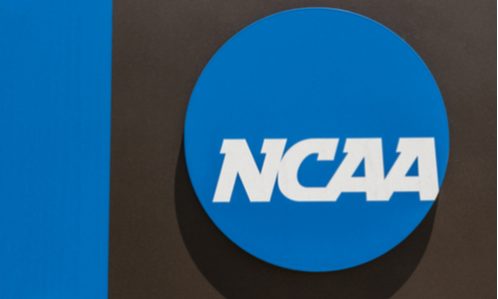
A federal judge in California is set to evaluate a settlement that could fundamentally change the landscape of college sports by creating a new model for compensating athletes. The case, overseen by Judge Claudia Wilken, centers on three antitrust lawsuits against the NCAA and its five power conferences. According to ESPN, the hearing on Thursday will mark the first time Wilken weighs in on the proposed settlement, with both sides presenting their arguments.
Wilken’s decision is a crucial step toward the potential approval of a $2.7 billion settlement that could reshape how Division I athletes are compensated. While she is not expected to rule immediately, her questions during the hearing could provide insight into whether the judge views the agreement as a fair resolution for compensating athletes over the next decade. “We are closer than ever to an entirely new era,” Gabe Feldman, director of Tulane University’s sports law program, told ESPN. He noted that the hearing will be pivotal in determining if the judge has any concerns about the terms of the settlement.
The NCAA and the power conferences reached a tentative agreement in May, offering $2.7 billion in damages to athletes who claim their earning potential was illegally limited by NCAA regulations. Per ESPN, the settlement also includes a plan allowing schools to directly compensate athletes through name, image, and likeness (NIL) deals, with payments expected to reach up to $23 million per school next year. In return, the NCAA would retain greater authority to enforce regulations designed to maintain competitive balance in college sports.
Read more: NCAA and Power Conferences File Historic Antitrust Agreement
Since the proposal was submitted to the court in July, several groups have raised objections. According to ESPN, five formal objections have been filed, including one from former Colorado football player Alex Fontenot, whose attorneys argue the settlement would unfairly resolve an ongoing antitrust lawsuit challenging NCAA limits on direct payments to athletes. Fontenot’s legal team claims the settlement undervalues the potential damages athletes could receive from his complaint and have urged Judge Wilken to reject it.
Another objection comes from a group of former and current women’s rowers, who argue that the settlement unfairly allocates most of the $2.7 billion to football and men’s basketball players, leaving female athletes at a disadvantage. Additionally, critics have raised concerns about the 10-year duration of the revenue-sharing agreement, claiming it would bind future athletes, including those still in grade school, to a system they had no role in negotiating.
Fontenot’s lawyers have also highlighted a potential conflict of interest in the case. According to their objection, the same attorneys negotiating past damages and future revenue-sharing could lead to concessions being made in the future model in exchange for a favorable outcome on damages. They are requesting that Wilken deny the settlement and appoint separate attorneys to represent the different classes of athletes involved.
As Judge Wilken reviews the arguments and objections, her decision on whether to approve the settlement could come in the following weeks.
Source: ESPN
Featured News
Big Tech Braces for Potential Changes Under a Second Trump Presidency
Nov 6, 2024 by
CPI
Trump’s Potential Shift in US Antitrust Policy Raises Questions for Big Tech and Mergers
Nov 6, 2024 by
CPI
EU Set to Fine Apple in First Major Enforcement of Digital Markets Act
Nov 5, 2024 by
CPI
Six Indicted in Federal Bid-Rigging Schemes Involving Government IT Contracts
Nov 5, 2024 by
CPI
Ireland Secures First €3 Billion Apple Tax Payment, Boosting Exchequer Funds
Nov 5, 2024 by
CPI
Antitrust Mix by CPI
Antitrust Chronicle® – Remedies Revisited
Oct 30, 2024 by
CPI
Fixing the Fix: Updating Policy on Merger Remedies
Oct 30, 2024 by
CPI
Methodology Matters: The 2017 FTC Remedies Study
Oct 30, 2024 by
CPI
U.S. v. AT&T: Five Lessons for Vertical Merger Enforcement
Oct 30, 2024 by
CPI
The Search for Antitrust Remedies in Tech Leads Beyond Antitrust
Oct 30, 2024 by
CPI